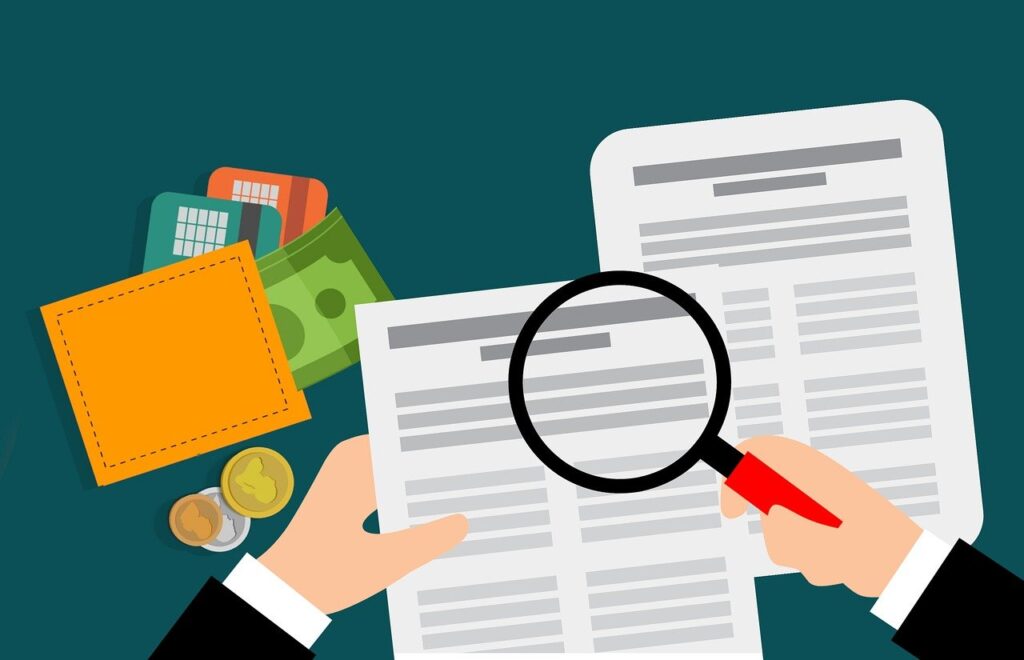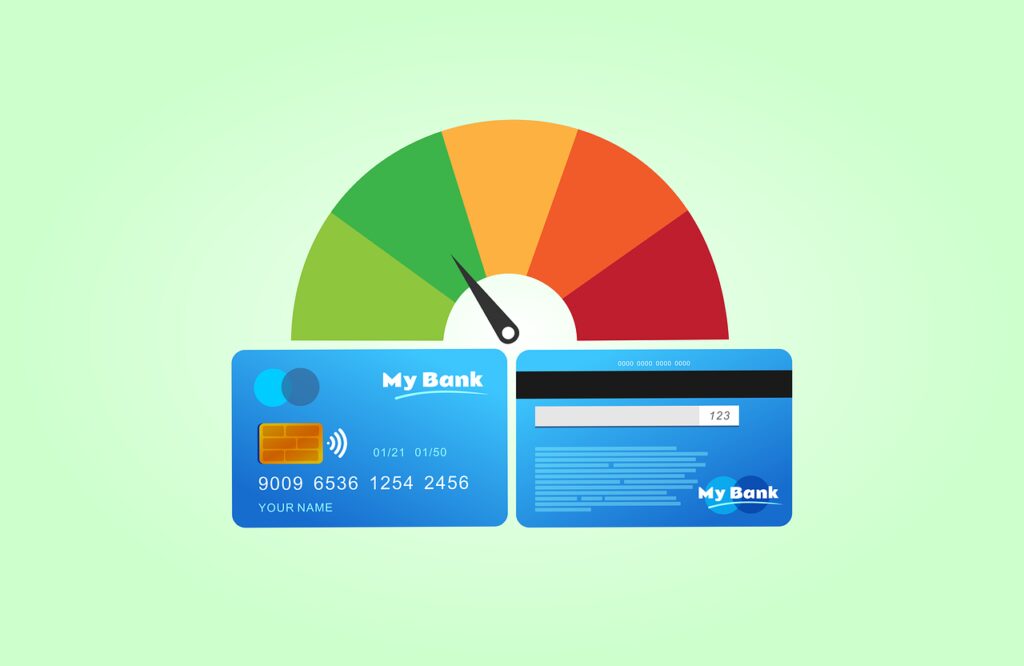Introduction to Credit Reports
Checking the credit report is highly weighted among the most important things one could do in managing one’s financial health. It gives you an idea of your standing in terms of credit, shows you areas that need further attention, and makes sure your information displayed to lenders is accurate.
Fortunately, it is more than possible to access your credit report for free with ease. A full guide compiled by our team of experts that will allow you to do so without many hustles.
Understanding Your Credit Report
Before explaining how to, one needs to know what it is. It’s an elaborative snapshot of your financial behavior, which is well demonstrated through the sequences below:
personal information that touches on your name, address, Social Security number, and employment history; the status of credit accounts, including all credit cards and loans one owns, other lines of credit, together with a list of payment history.
Inquiries: A list of the organizations that have accessed your credit report. There are two types of inquiries, “hard” inquiries and “soft” inquiries.
Public Records: Lists items such as bankruptcies, tax liens, or civil judgments.
Collections: A listing of debt that has been sent to a collection agency.
All of this information is then given to the lenders, who thereby make certain estimates about the probability of you being creditworthy. It could very well impact everything from being approved or rejected for a specific type of loan down to the interest rate given. Knowing what is on your report gives you power toward better financial management.

Why You Should Check Your Credit Report Regularly
Why bother to check your credit report? Quite simply, it’s your first line of protection against mistakes and fraud. That is why regular checks are important:
Detection of Errors: A single mistake in your credit report may lower your credit rating-the result could be that you have to pay higher interest rates or be denied credit altogether.
Identity Theft Prevention: By checking frequently, you’re likely to notice strange activities such as accounts opened under your name, known as identity theft.
Monitoring of Your Financial Health: Knowledge of your credit report on a timely basis gives you a general understanding of how various financial practices can upgrade or lower your credit score rating.
A quick note: Pulling your credit report does not effect your credit score. It is considered a “soft inquiry,” and does not reflect on your creditworthiness. your own credit report does not hurt your credit score. It’s considered a “soft inquiry,” which means it has no impact on your creditworthiness.
The Free Credit Report Act: Your Rights
Under the FCRA, you are entitled to one free credit report from each of the three major credit reporting bureaus once in a period of 12 months. How not to fall prey to fraud and additional charges is the trick for obtaining these reports.
AnnualCreditReport.com: This is the only source that, under legislation, can provide you with a free annual credit report. You can request all three at once or space them throughout the year for more regular insight into your credit position.
Credit Bureaus: You can also get credit reports directly from Equifax, Experian, and TransUnion.
Credit Monitoring Services: Most of the services will give you a free credit report included in their service but may upsell other services.
How to Request Your Credit Report Online
It is easy and quick to get your free credit report online. Here’s how:
- Go to AnnualCreditReport.com: This is the official site.
- Enter Your Information: Put in your name, Social Security number, birth date, and address.
- Reports you want to avail: Select credit bureau: Equifax, Experian, and TransUnion. From which you want the reports.
- Answer security questions. These are for checking your identity, and it will ask about the loans taken by you, the credit cards used, or any other questions related to personal finance.
- Your Report: If the security check passes, then you’ll see the credit report and also can download it.
How to Review Your Credit Report
Now that you are supposed to have your credit report, get into the minute details of it. Following is what you should look for:
Personal Information: Make sure your name, address, and other personal details are correct. Wrong information may reflect error or worse, identity theft.
Account Information: List each credit account. There should be no accounts you do not know, or errors about the amount owed.
Payment History: This is one of the largest factors of your credit score. Check to see that all of your payments have been recorded, most importantly the ones you have paid on time.
Credit inquiries A list of those pulling your report; this may be identity theft if you see companies you did not contact.
Public Records and Collections: Take the time to make sure any negative information – bankruptcies, collections – is accurate and up to date.

What to Do If You Find Errors
Mistakes in credit reports are a little more common than you may imagine. If you do happen to find one, well, here is what you do:
- Dispute the Error: First of all, what needs to be done is to contact the credit bureau that issued the report with the error in it. A person should write them a letter describing the error one has found in detail, along with attachments to prove your stand.
- Contact the Creditor: If the error pertains to an account, then one may want to directly contact the creditor. They will be able to help correct that mistake with the credit bureau.
- Follow Up: The credit bureau takes 30 days to investigate your dispute and mail you its response. “If they find the mistake, they’ll fix it and send you a fresh report.”
How Often Should You Check Your Credit Report?
It depends on how well you are financially positioned. Examples, or situations in which this could be done, include:
Monthly: This is the bare minimum you can do to check for errors on your report or signs of fraud.
At Various Intervals of Time: One year ago, several months ago prior to important decisions related to credit. Are you going to apply to a mortgage, an automobile loan, or maybe a new credit card? It’s better to check a few months in advance so that things are all kosher.
If You’re Fixing Your Credit: You can get one every several months, so you can see how you’re doing, if you’re rebuilding credit.

Alternatives to Getting Your Credit Report
Although AnnualCreditReport.com is the only authorized source for a free credit report, there are other ways you can manage your credit:
Credit Monitoring Services: Most services in the market have free credit reports as part of the service package. Other than this, the service might also be able to provide notifications on changes to your credit report.
Credit Card Companies: Many credit card companies do extend the facility for free access to the credit report or score as a privilege addition to their cardholders.
Financial Applications: Apps like Credit Karma and Mint will give you free credit reports and scores. Not comprehensive reports, just general overviews issued through the credit bureaus themselves, mostly.
How Credit Reports and Credit Scores Are Connected
It’s easy to confuse a credit report with a credit score, but they’re not the same One can easily get confused between a credit report and a credit score, though they are two different things. Here is how they differ:
Credit Report: This is the whole history of all your credit accounts, inquiries, public records, and collections.
Credit Score: A three-digit number that depicts your creditworthiness; it is calculated from data in your credit report.
It takes into account various factors that consider your payment history, credit utilization, length of credit history, and type of credit you have taken. Though your credit report comes free, your credit score may just cost a dime, although some firms give it away for free.
What If You’ve Been Denied Credit?
Well, if in the recent past you have been denied credit, then you are entitled to a free credit report. Here’s how you go about it:
Pull your report: You would want to contact the credit reporting agency, which provided the report on which the adverse action was based. You have 60 days from the date of your adverse action notice to request it.
Check the report: Highlight all those things that are negative on the report, which could be the reason for denial, such as late payments or high credit utilization.
Dispute Them: If errors, dispute them. But if the information that is negative against you is indeed correct, then it is going to take some time, so clean up your credit before you try again.
How to Keep Your Credit Report Healthy?
Healthy credit, in turn, can mean long-term health as far as your finances are concerned. Here’s our top recommendations from our experts:
Pay Your Bills on Time: You would realize how much damage or good credit ratings can create when it comes to making late payments. For that matter, you must ensure that you never miss a due date by automating your payments or setting up a reminder.
Keep the Balances Low: The heavy balance of a credit card is always a ding against your credit score. For the best effect, utilization should be below 30%.
Avoid Too Many Account Applications: Every credit application leaves you with a hard inquiry that can lower your score. One should apply for credit when in need.
Regularly Check on Your Report: Checking your credit report once in a while will help you find errors or fraud once they are set.

Purgatory Myths about Credit Reports
There is so much bad information floating around about credit reports. Here are some myths our experts would like to clear up:
Pulling Your Own Credit Report Lowers Your Score: Quite simply, this simply isn’t true. Pulling your own credit report is considered a soft inquiry, and it has no effect on credit score whatsoever.
Myth #1 Paying Off a Debt Removes It from Your Report: Technically this could be correct; however, it does not take the debt off of your credit report when you pay off the debt. Sometimes these reports can come up for as long as seven years; however, they will include the notation “paid.”
How Our Team Came Up with These Ideas
A team of our financial experts has helped many clients over the years to keep good credits. Over these years, we have been subjected to the firsthand experience of how an effective and well-maintained credit report can ease one’s financial life at all times.
This is a compilation of various questions and concerns put forward by people just like you who have a general urge to be in control of their financial health without incurring any undue expenses.
Conclusion
Pulling your credit report is one of those relatively easy, no-brainer activities you can do to maintain your financial health. Knowing how to get it for free and how to find and correct errors will protect your credit and enable you to make good financial choices.
Moreover, for any query or information, our staff is always at your service. We’ll keep going on with you, step by step, in every process of your finance.


Leave a Reply